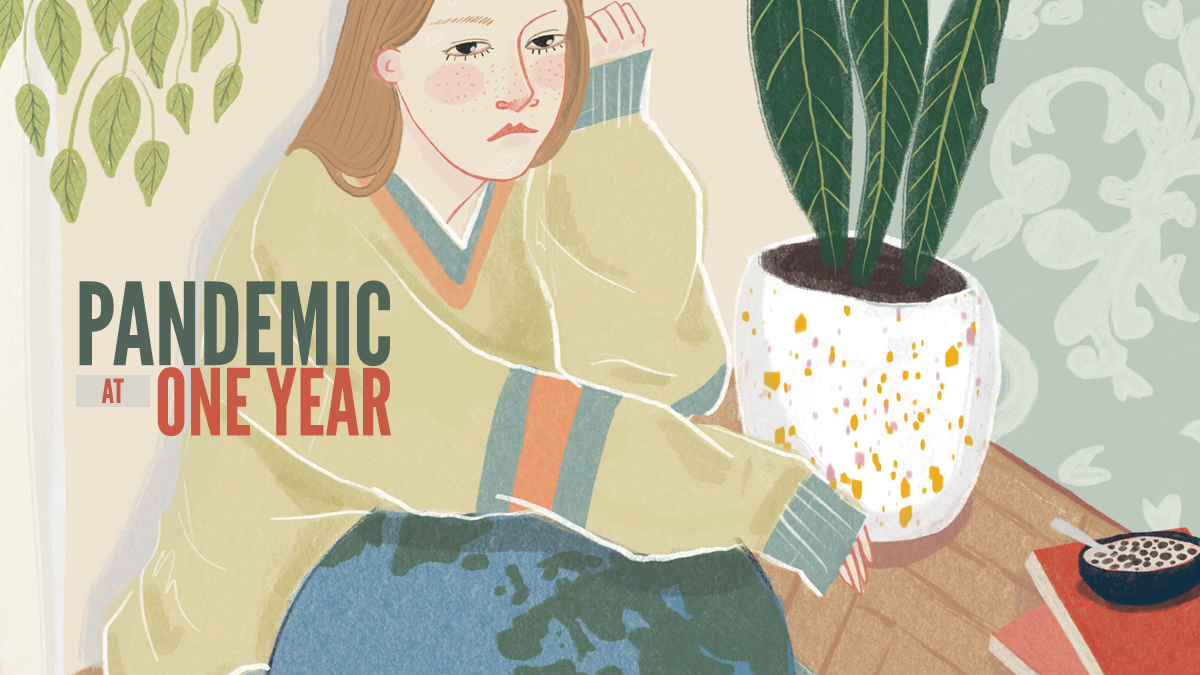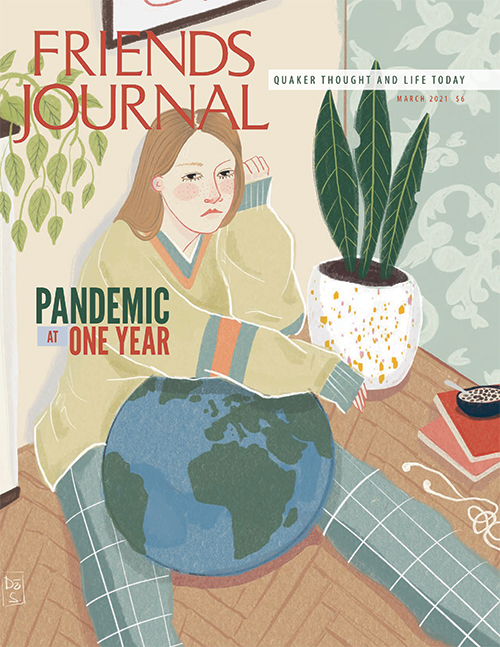I loved science and history growing up. I gravitated toward magazines like National Geographic and The Smithsonian in the school library. While my family life had more than its share of drama and mystery, the routines of school, homework, tv, and dinner seemed set in stone and never-ending.
Historical natural disaster stories made for particularly captivating diversion. They showed moments when forces beyond human control forced a change of routine. Ancient Pompeii, frozen in time one night by Vesuvius’s ash. Galveston, the fourth largest city in Texas, all but flattened by the Great Storm of 1900. One of the most gripping stories to my young imagination was an influenza pandemic that spread around the globe in my grandparents’ lifetime, killing millions worldwide and 20,000 in my hometown of Philadelphia.
What would it be like to live through such a collective historical event? How would I react? How would routines change?
Last March 11, I walked out of the Friends Journal office at 4:38 p.m. to catch my normal train home. It was a Wednesday. The short days of winter had ebbed, and it was bright and sunny outside. At the top of the subway steps, I paused a moment, looked around, and wondered when I’d next see Philadelphia.
We all have similar stories. We have collections of masks; we’ve learned how to use Zoom; we’ve become adept at ordering food and clothing online. We’ve carved out imperfect spaces on kitchen tables, back patios, and bedrooms to work and socialize. Many of us have seen friends, neighbors, or family members fall ill and sometimes succumb to the virus. We’ve missed friends’ weddings, birthday parties, family gatherings, summer holidays. New hospital rules meant I almost didn’t get to say goodbye to my dying brother in December. This is a collective trauma.
But not all of the change is negative. Our authors this month tell the stories of a year in lockdown. There’s a lot of bravery and resilience here. There’s also surprising hope. David Male and Tricia Gates Brown remind us of stories of spiritual exodus and self-denial in the Christian tradition, of seasons that call for us to wait with expectation and with faith. Rachel Miller and the folks at Friends Council on Education share how online tools have made some of our communities more accessible to some. Kaylee Berg shares new self-discoveries and wonders how they might be integrated into her life after COVID-19. Jaimie Mudd and Howard Garner find solace in old practices made new.
As Friends we know there is always light at the end of spiritual tunnels, but as we enter the third month of 2021, it’s possible for rational minds to see an end. Treatments for acute COVID-19 have improved, and vaccines are slowly making their way through much of the population. There will be a time when we can put masks away at the back of drawers and return to family reunions, sports stadiums, performance venues, and restaurants. With any luck this era will be tidily wrapped up in a future Wikipedia entry for our grandchildren to marvel at.
Until then, please join me in holding those we have lost in the Light, along with those still suffering loneliness and depression in this era of social isolation. Let us all commit to being a bit kinder and more generous. Be safe, Friends.




Comments on Friendsjournal.org may be used in the Forum of the print magazine and may be edited for length and clarity.